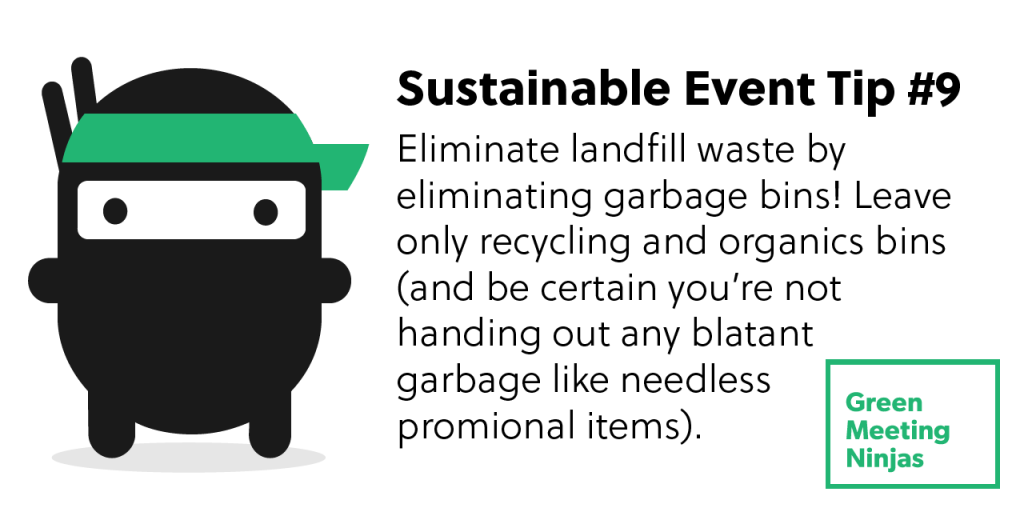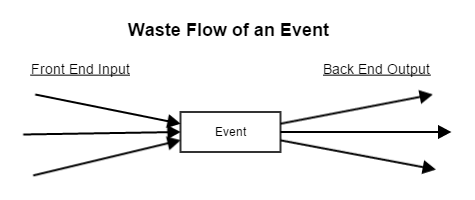Sustainable Event Tip #9 – Planning a Zero Waste Event
James Watson | Posted on |

Sometimes the best way to solve a problem is to avoid creating that very problem in the first place. When it comes to planning a zero waste event, this is an especially effective approach.
In other words, not only can you reduce the amount of waste destined for the landfill by managing the waste on the back end (e.g. by having the appropriate waste receptacles and sorting the waste) but by carefully managing all of the input materials on the front end. Here’s a small diagram to illustrate that:

If you host an event and choose to serve all of the food and beverage in Styrofoam containers (a decision made on the front end), you’re going to have a very difficult time diverting any of that waste on the back end. Even if, alternatively, you choose to use plastic containers for the food and beverage and expect to ask attendees to properly sort their waste, the odds are that you’ll be disappointed.
For example, consider these photos that I took of a couple “recycling” bags after an event that Green Event Ninjas has begun working with:

You can see some of the recyclable containers in those bags, along with organic waste, individual milk and cream packets, disposable cups, etc. These bags of waste, originally intended for recycling, are clearly too contaminated with organic and landfill waste to be diverted. They are destined for the landfill and any zero waste event ambitions we had were dashed.
A better solution, therefore, is to eliminate the problem in the first place. If you instead serve all of the food and beverage in compostable or reusable containers (like the MIT Sustainability Summit), and proactively manage other inputs of waste (like unnecessary promotional items), then you could eliminate garbage bins altogether. Maybe even the recycling bins too. If all the inputs are compostable, all you need are organics bins.
For small gatherings, it’s relatively easy to plan for a zero waste event. For larger events like conferences, festivals and other celebrations, the upfront planning may be more demanding, but the benefits realized on the back end, in terms reduced labor and waste diversion costs, can pay dividends.

2 Comments